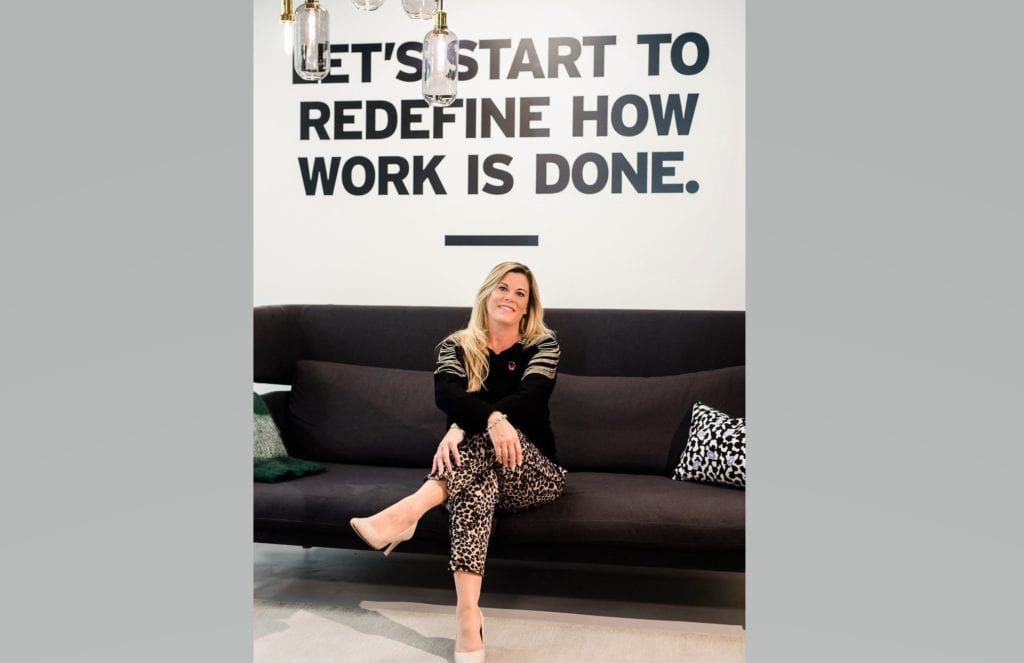The global pandemic has had far reaching consequences to date, including lockdowns disrupting work and home lives, a sudden shift to working from home and unfortunately millions have lost their jobs. Heidi Skirrow, Absolute Works Dorset HR & Employment Law shares her thoughts.
The future feels uncertain and will inevitably be different to that which we have considered to be our norm. Can we really predict what that future looks like in the world of work, post-pandemic?
One thing I do know is that there’s been a fundamental shift in the way we work. Home working and remote working to a certain extent for some, has been normalised as a result and the way in which we behave, connect and communicate may well have changed forever. The pandemic has created an opportunity to stand back and look at new possibilities in how we work and how Organisations are run. I believe that we’ve learnt the importance of trust, accountability and flexibility and that we can still maintain quality and productivity by working remotely. Many Organisations are looking to modernise ways of working and re-emerge from this pandemic even stronger, reframing the way in which they connect, collaborate and communicate.
The traditional notion of 9-5 presenteeism in an office has been blown out of the water for some and leaders are tuning in to the possibility of doing things very differently. Microsoft & Fujitsu are leading the way having announced that they will be allowing their employees to work from home permanently. Organisations are breaking away from the old-fashioned premise of measuring presenteeism to measuring output whilst at the same time learning and evolving to create a more virtual world of work. This will provide the ability to drive greater diversity within the workforce giving greater access to new pools of talent such as people with disabilities and working mothers. For example, it’s well known that women are more likely to have a need to balance their work-life with family responsibilities, meaning that often one is sacrificed for the other. Remote working could create a more level playing field with women better able to balance the two. It is in any Organisations best interests to remember to consider inclusivity alongside diversity to ensure the diverse talent can thrive.
Many employees are asking themselves the question, will we ever go back to the office and if we do will that now be a hybrid approach between office and home and what impact will this have on how we work, communicate, socialise and innovate? My guess is that a blended model is likely as leaders attempt to balance the efficiencies gained by remote working with the benefits associated with working face to face with others such innovation, creativity and social interaction. A hybrid model may allow the best of both worlds as the advantages of remote working and providing employees with the freedom to work in ways suited to their needs are balanced with the disadvantages which can be, the lack of boundaries between work and home life, zoom fatigue, extended working days, perhaps less coaching, training and support and indeed loneliness and lower mental health. Virtual worlds of work will emerge spread across home, office and satellite offices.
Employees are realising that they have more choice as to where to work and live as a result and expectations regarding working conditions, flexibility and employees choosing how they want to work have never been higher. Is this now irreversible? Employees enjoy skipping the daily commute, being trusted and having the flexibility to attend to their personal needs by customising their days.
Progressive Organisations that take the opportunity to embrace and adapt to these new expectations post pandemic, will undoubtedly gain huge competitive advantage, gaining and retaining talent and driving higher employee engagement leading to higher productivity and loyalty. The opportunity of sourcing talent more easily will present itself, enabling greater diversity and obtaining skills under-represented locally.
Organisations will need to seriously consider their culture to allow strength within that of trust and a sense of belonging alongside how they will support their leaders to manage remote teams effectively. How will they maintain team spirit, trust? How will they motivate, coach and evaluate performance and wellbeing? How will they ensure collaboration, communication? This will not be easy but can be done.
Coupled with all this change, will be how Organisations can successfully adapt their tools and technology and transform their digital strategy to support the effectiveness of this new way of working. Some of the questions Organisations need to ask themselves are; Does the technology enable multiple ways of working? Is the IT security tailored to this new way of working? Do we have applications that enable new ways of working and collaboration with ease? How will we develop the digital capabilities of our employees?
In my opinion, it’s safe to say that we’ve all had a crash course recently in modern technology but perhaps this too is a catalyst for change.
However, what about those who can’t work from home? Will things change for them? The answer is, yes probably for some. Daily commutes are likely to be less congested and business travel likely reduced. However, there may well be a downside that will likely result in less of a requirement for the roles which support travel and office working. Maybe a reduction in the need for transportation, catering, cleaning and maintenance and the detrimental impact upon commercial real estate and of course retail. How will we respond to safeguarding these employees? Increased access to training or education? Programmes to support the development of new skills?
Whatever the future holds, the current shift is consequential.
Heidi Skirrow. Absolute Works Dorset HR & Employment Law
https://absoluteworks.co.uk/hr-dorset/
